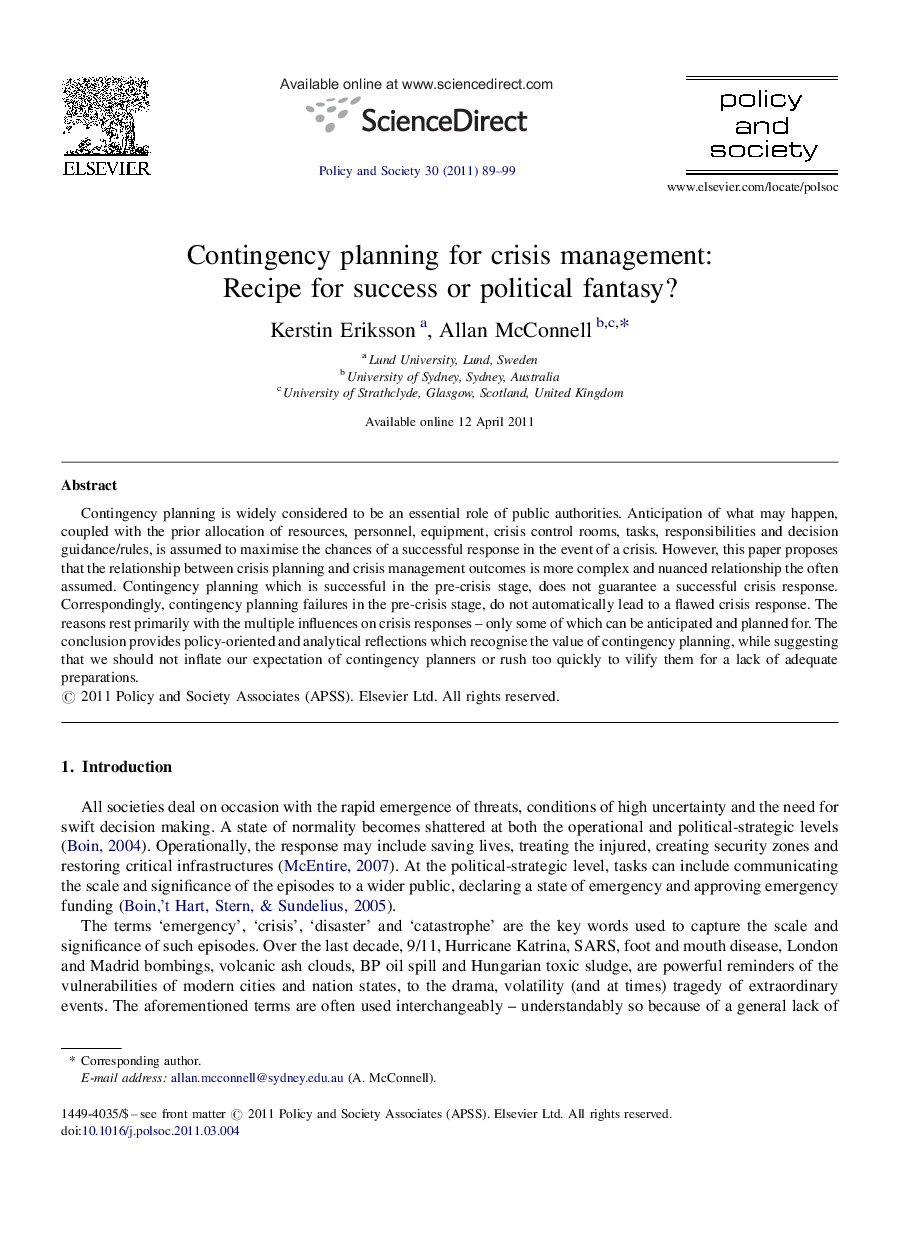| Article ID | Journal | Published Year | Pages | File Type |
|---|---|---|---|---|
| 1061574 | Policy and Society | 2011 | 11 Pages |
Contingency planning is widely considered to be an essential role of public authorities. Anticipation of what may happen, coupled with the prior allocation of resources, personnel, equipment, crisis control rooms, tasks, responsibilities and decision guidance/rules, is assumed to maximise the chances of a successful response in the event of a crisis. However, this paper proposes that the relationship between crisis planning and crisis management outcomes is more complex and nuanced relationship the often assumed. Contingency planning which is successful in the pre-crisis stage, does not guarantee a successful crisis response. Correspondingly, contingency planning failures in the pre-crisis stage, do not automatically lead to a flawed crisis response. The reasons rest primarily with the multiple influences on crisis responses – only some of which can be anticipated and planned for. The conclusion provides policy-oriented and analytical reflections which recognise the value of contingency planning, while suggesting that we should not inflate our expectation of contingency planners or rush too quickly to vilify them for a lack of adequate preparations.
